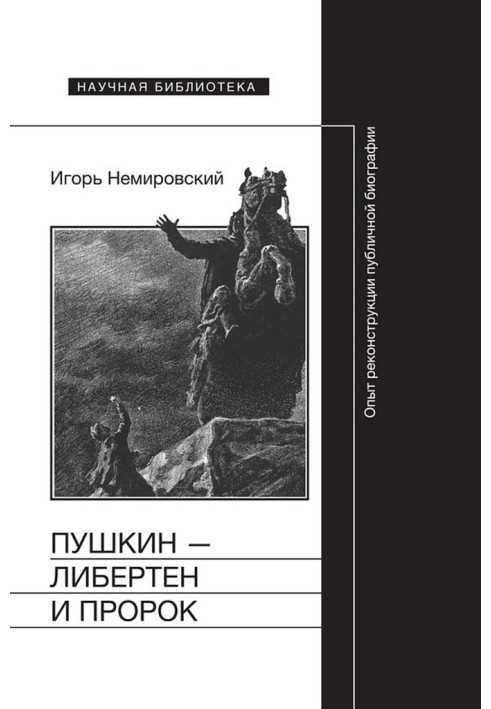Pushkin is a libertine and a prophet. Experience in reconstructing public biography
 Instant download
Instant download
after payment (24/7)
 Wide range of formats
Wide range of formats
(for all gadgets)
 Full book
Full book
(including for Apple and Android)
The author considers the works of A. S. Pushkin as manifestations of two opposing trends: libertinistic, aimed at desacralization and profanation of the social and confessional norms that existed in his time, and prophetic, focused on sacralizing the role of the poet as the tsar’s interlocutor. One of the main themes is Pushkin’s relationship with both tsars: Emperor Alexander, to whom Pushkin the libertine “whistled to his very grave,” and Emperor Nicholas, the recipient of the “free praise” of Pushkin the prophet. An important component of the study is the analysis of the poet’s public behavior, understood here as an intrinsic product of Pushkin’s creativity. The author shows how Pushkin's public behavior became the image by which contemporaries judged the poet and which shaped his social reputation. The final chapters are devoted to the reception of Pushkin by the sixties and F. M. Dostoevsky, who, following Gogol, declared Pushkin a prophet.
Data sheet
- Name of the Author
- Игорь Немировский Владимирович
- Language
- Russian












